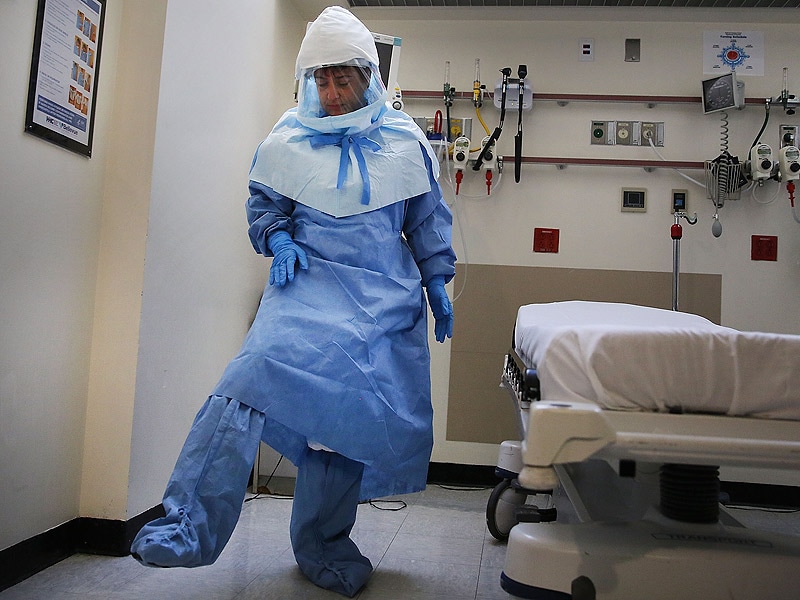This week, I and 2 other Backus front-line ER nurses trained at Hartford Hospital to be Ebola "super users," which means we can now train others to care for suspected Ebola patients and supervise their care of these patients.
The training involved learning and practicing the gowning up and un-gowning (donning and doffing) of the enhanced PPE (personal protective equipment).
It was a well run program and if we carry through with the plan to train bedside staff it will accomplish what I believe it needs to.
Ebola is a virus that spreads through body fluids. It has killed over 5,000 in people in cases that have laboratory confirmation, and estimates of 12,000 total, this year, including 186 healthcare workers as of mid September.
Enhanced PPE both protects the healthcare worker and limits the chance of spreading the disease. Eradication of Ebola depends on stopping it's spread, as there is currently no cure or vaccine.
Do I think we will see a suspected case at my hospital? It wouldn't surprise me.
Do I think we'll see a case that is proven to be Ebola? I hope not, and the odds are on our side.
However, if we do, the results can be devastating if not managed properly.
That is why I and so many others have worked so hard on insisting that front line workers be involved in planning, training and practicing.
I want to thank my union (AFT) leadership, staff, and members, who have been and continue to help us advocate for ourselves, our patients, and the public.
It has been an uphill battle and yesterday was a big step.
Even if we see no cases of Ebola, I don't know of anyone in healthcare who believes this is the last virus of this nature that will come our way.
The underlying theme in Ebola care is to involve front-line staff, take your time, do things correctly, double and triple check, provide adequate resources, practice, practice, practice, and safety, safety, safety.
It is the theme that should run though all of healthcare, but so often, short staffing and the push to see more patients in less time, conflicts with these principles.
We insist that the airline and nuclear industry practice safely, we should do the same with healthcare.
What I have learned from this experience, is that healthcare workers can use their collective voices, can team with the Departments of Public Health, CDC, OSHA, legislators, and the public, and we can advocate for safety in healthcare.
As my good friend Lesa Hanson said when we were organizing, " I once thought a nurse's role was to advocate at the bedside, now I realize we must advocate at the bedside, the boardroom, and the statehouse."
Below is an example of the enhanced PPE we trained with.
You don't learn this in Nursing School.

No comments:
Post a Comment